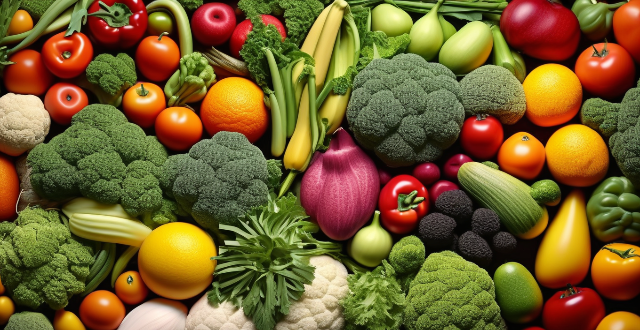To ensure your fruits and vegetables are organic, buyTo ensure your fruits and vegetables are organic, buy stores, grow your own using avoid contamination by washing produce thoroughly, and educate yourself on the latest research and news about organic farming.

How to Ensure Your Fruits and Vegetables are Organic
1. Buy from Certified Organic Farmers or Stores
- Look for the USDA Organic seal on produce. This ensures that your fruits and vegetables have been grown without synthetic pesticides, fertilizers, or genetically modified organisms (GMOs).
- Visit local farmers markets where growers often sell their organic products directly to consumers.
- Join a Community Supported Agriculture (CSA) program to get a regular delivery of seasonal organic produce from a trusted farm.
2. Grow Your Own
- Start a garden in your backyard or in pots if you have limited space. Use organic soil, compost, and natural pest control methods.
- Learn about companion planting to deter pests and encourage healthy growth without chemicals.
- Consider using heirloom seeds, which are often more suited to organic gardening practices.
3. Know Your Labels
- "100% Organic": This means all ingredients are certified organic.
- "Organic": At least 95% of the ingredients are certified organic.
- "Made with Organic Ingredients": At least 70% of the ingredients are certified organic, but the final product cannot be labeled as organic.
- Be wary of labels like "natural" or "no additives," as these terms are not regulated and do not necessarily mean organic.
4. Avoid Contamination
- Wash all fruits and vegetables thoroughly under running water, even if they are labeled as organic, to remove any potential surface contaminants.
- Consider using a gentle fruit and vegetable wash or a homemade solution of water and vinegar to further clean your produce.
- Peel off outer leaves of leafy greens and roots vegetables, as these can harbor more dirt and pesticides.
5. Educate Yourself
- Read up on the latest research and news regarding organic farming and food production. This will help you make informed decisions at the grocery store.
- Follow reputable sources such as the Environmental Working Group (EWG) for annual guides on the "Dirty Dozen" and "Clean Fifteen" lists, which rank fruits and vegetables based on pesticide residue levels.
By following these steps, you can significantly increase the likelihood that your fruits and vegetables are truly organic and free from harmful chemicals.